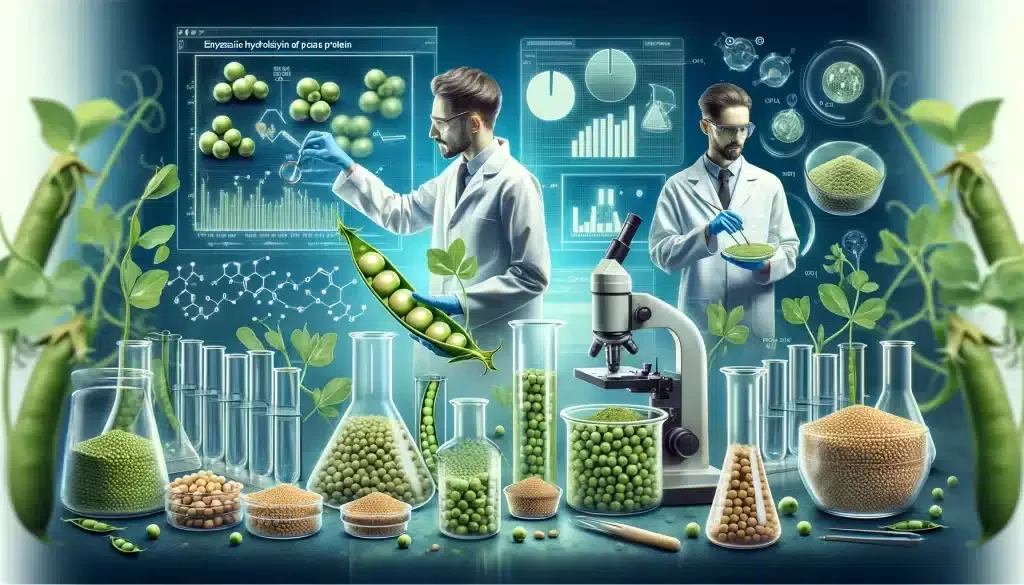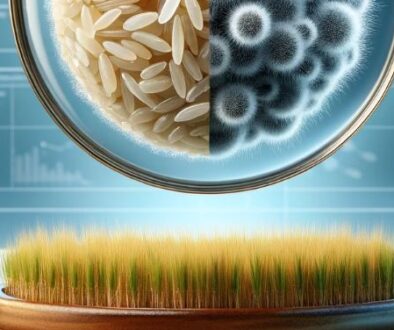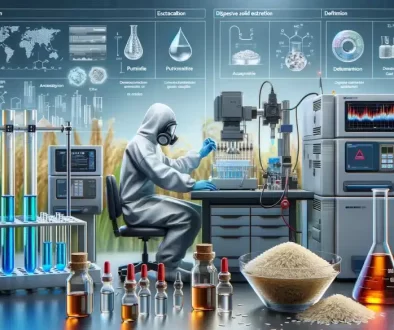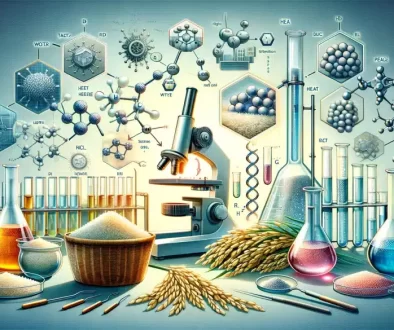Optimizing Pea Protein Hydrolysis for Enhanced Functionality
Discover optimized pea protein hydrolysis methods for improved solubility, recovery, and antioxidant activity in food and pharmaceutical industries.
Keywords: Pretreatment; enzymatic hydrolysis; pea peptides; bitterness; antioxidant activity
Enzymatic Hydrolysis Process Study of Pea Protein
Pea protein, as a valuable plant-based protein source, has attracted increasing attention in the food and pharmaceutical industries due to its high nutritional value and functional properties. This study explores the enzymatic hydrolysis process of pea protein, focusing on the effects of enzyme types, enzyme addition methods, and pretreatment techniques on hydrolysis efficiency, protein recovery, insoluble peptide proportion, and antioxidant activity of pea protein hydrolysates.
Effect of Enzyme Types on Degree of Hydrolysis
The degree of hydrolysis, which refers to the percentage of peptide bonds cleaved during a specific period of the hydrolysis process, significantly influences the peptide chain length composition of the final product and its physiological functions. Our research found that enzyme types play a crucial role in the hydrolysis process of pea protein. Among the enzymes tested, alkaline protease exhibited the strongest hydrolysis capability, achieving the highest degree of hydrolysis after 3 hours, followed by composite protease. Neutral protease, papain, and flavourzyme showed lower degrees of hydrolysis. This variation is attributed to the specific selectivity and accessibility of different enzyme preparations towards the protein chain.
Influence of Enzyme Addition Methods on Protein Recovery and Insoluble Peptide Proportion
Exploring single-enzyme and dual-enzyme hydrolysis using alkaline protease and composite protease, our study aimed to understand how the method of enzyme addition affects pea protein hydrolysis efficiency. The results indicated that sequential addition of alkaline protease and composite protease resulted in the highest protein recovery rate and the lowest insoluble peptide proportion, reducing protein substrate loss. This suggests that extensive hydrolysis by alkaline protease exposes more sites for composite protease action, thus enhancing hydrolysis efficiency.
Effect of Enzyme Addition Methods on Antioxidant Activity of Pea Peptides
Pea protein hydrolysates exhibit antioxidant properties, capable of donating hydrogen atoms or electrons to neutralize free radicals. The antioxidant activity of pea protein hydrolysates was assessed using DPPH and ABTS radical scavenging assays and metal chelating activity. Our findings demonstrate that the stepwise enzymatic hydrolysis by alkaline protease followed by composite protease produces pea peptides with the strongest antioxidant activities, suggesting that enzyme types and hydrolysis degree influence antioxidant activity.
Impact of Pretreatment on Pea Protein and Its Hydrolysis Effect
Pretreatment methods, including heat treatment and high-speed shearing, were investigated for their impact on the solubility of pea protein and the efficiency of its enzymatic hydrolysis. Protein solubility is crucial for its functional properties in food applications. Our study revealed that both heat treatment and high-speed shearing significantly improve pea protein solubility, potentially due to the reduction in molecular weight and exposure of ionizable residues that prevent protein aggregation.
Pretreatment Effects on the Structural Characteristics of Pea Protein
The secondary structure composition of untreated and pretreated pea proteins was analyzed. Pretreatments were found to alter the proportions of α-helices, β-sheets, β-turns, and random coils, likely due to changes in electrostatic interactions and the disruption of intramolecular hydrogen bonds. Scanning electron microscopy (SEM) images further demonstrated that pretreatments enhance the enzymatic hydrolysis of pea protein by increasing the protein surface area accessible to enzymes, indicating a more favorable structure for hydrolysis.
Influence of Pretreatment on Hydrolysis Degree, Protein Recovery, and Antioxidant Activity
Pretreatments significantly accelerated the hydrolysis rate, improved protein recovery, and reduced the proportion of insoluble peptides. Additionally, heat treatment and high-speed shearing significantly enhanced the antioxidant activity of pea protein hydrolysates. This enhancement could be attributed to the release of more peptides with free radical scavenging activity and the exposure of more acidic and basic amino acids capable of binding metal ions.
Effects of Pretreatment on Peptide Composition
The molecular weight distribution and amino acid composition of pea protein hydrolysates were affected by pretreatments. A shift towards lower molecular weight peptides was observed, enriching the hydrolysates in dietary, medicinal, and nutritional value. The amino acid composition analysis indicated that pretreated pea protein hydrolysates are rich in essential amino acids, making them a high-quality protein source for human dietary needs.
Conclusion
This study underscores the significance of enzyme selection, enzyme addition methods, and pretreatments in optimizing the enzymatic hydrolysis of pea protein. By enhancing hydrolysis efficiency, improving protein recovery, and increasing antioxidant activities, the optimized hydrolysis process presents a promising approach for producing pea protein hydrolysates with enhanced functional and nutritional properties. These findings offer valuable insights for the food and pharmaceutical industries in developing
For more further detailed information of this research, feel free to contact our team for asssistance.
Original research by Xia Yixuan, Zhang Hui, Hui Ju, Mu Wanmeng (Food Engineering, Jiangnan University, Wuxi 214122)
About ETprotein:
ETprotein, a reputable rice protein Chinese factory manufacturer and supplier, is renowned for producing, stocking, exporting, and delivering the highest quality organic bulk vegan protein and plant proteins. They include Organic rice protein, clear rice protein, pea protein, clear pea protein, pumpkin seed protein, sunflower seed protein, mung bean protein, etc. Our offerings, characterized by a neutral taste, non-GMO, allergen-free attributes, cater to a diverse range of industries. We serve nutraceutical, pharmaceutical, cosmeceutical, veterinary, as well as food and beverage finished product distributors, traders, and manufacturers across Europe, USA, Canada, Australia, Thailand, Japan, Korea, Brazil, and Chile, among others.
Our specialization includes exporting and delivering tailor-made protein powder and finished nutritional supplements. Our extensive product range covers sectors like Food and Beverage, Sports Nutrition, Weight Management, Dietary Supplements, Health and Wellness Products, and Infant Formula, ensuring comprehensive solutions to meet all your protein needs.
As a trusted company by leading global food and beverage brands and Fortune 500 companies, ETprotein reinforces China’s reputation in the global arena. For more information or to sample our products, please contact us and email sales(at)ETprotein.com today.












